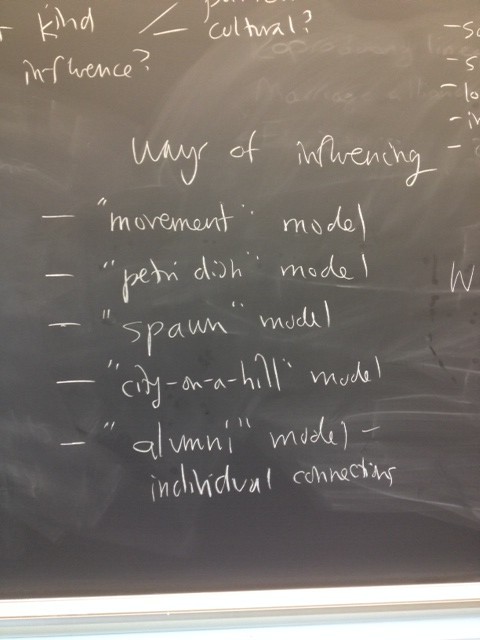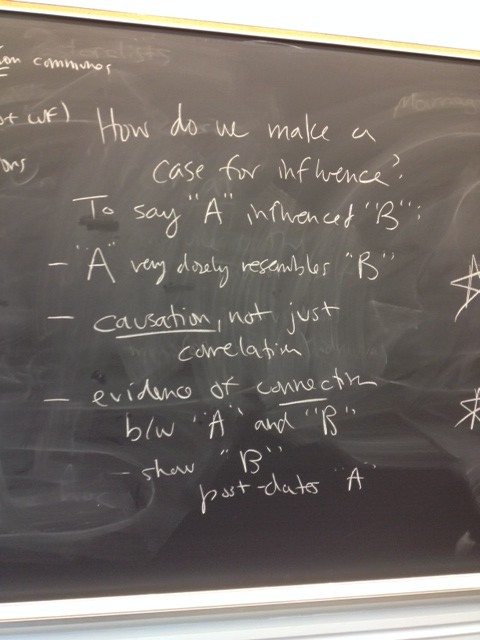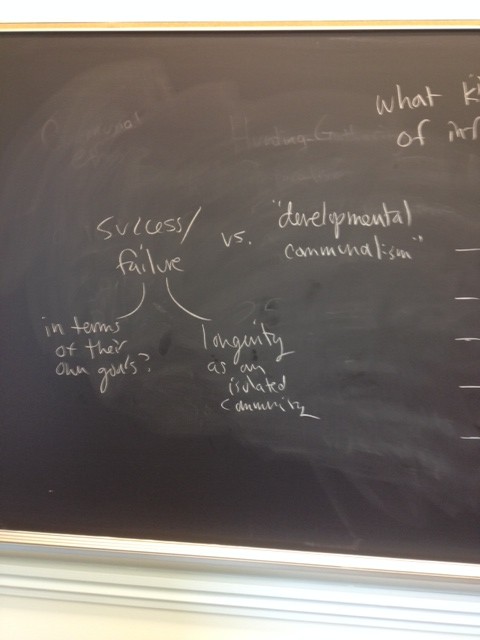In class today, we looked at, and attempted to revise, some actual examples of student paragraphs as seen “in the wild” (that is, in long-ago courses). You can find the Google Doc here.
Category Archives: Class Notes
Today’s Discussion Notes
Here are the notes I took during your "discussion bee" at the beginning of class. You can leave comments on the document if there is anything you’d like to add or expand on.
Demonstrating Influence
Yesterday in class, we talked a lot about how historians think about and demonstrate causal influence. I took some photos of notes that we assembled on the chalkboard.
First, we discussed what makes an article persuasive. Persuasiveness includes things like the clarity and rhetorical style of the article, but we also discussed why the soundness of the argument and the use of evidence are the most important criteria for historians in deciding whether an article makes a good case. These two areas will be the most heavily weighted assessments on your final research paper.
We then put on our “lumper” hats and talked about various ways that utopian communities might influence the culture outside their boundaries:
Of course, all of these are hypothetical ways that a community “A” might influence “B.” To actually demonstrate such influence, a historian has to show a number of things using specific evidence. We can’t assume a priori that influence did or did not occur in a certain way, and we can’t assume that “B” was influenced by “A” just because it came after the fact. (That would be a post hoc ergo propter hoc fallacy.) Demonstrating influence isn’t a simple matter, and it involves at least the following steps:
Finally, we briefly discussed how different scholars of communes think about what happens when a commune dissolves. Some think of the end of a commune’s life in terms of success or failure and try to figure out why the community failed. Others, like Pitzer, believe the dissolution of the community might be evidence of its success.
These points may be worth revisiting later in the semester, especially if you want to make an argument about influence in your paper.
Notes from September 3
You can see the notes from our discussion yesterday in this Google Doc. The Google doc is also editable, so if you see anything you wish to add, please feel free to do so.
Some of the topics covered in these notes are:
- What is the definition of a utopian community? Different categories of communities?
- Different scholarly approaches of "lumping" and "splitting"
- What is the difference (if there is one) between a "sociological perspective" on utopias and a historical one?
- What are some scholarly questions about utopian communities where there might be disagreements?
These topics might be useful for you to return to in later weeks as you begin planning your research paper.





